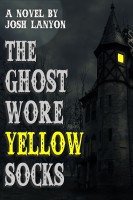The Brief History of the Dead - Brockmeier Kevin (книги бесплатно без регистрации TXT) 📗
The food was excellent. Marion could sense her bad feelings drifting away from her as she ate, and by the time she was finished, her mood had lifted entirely. She watched Phillip drink the last of his coffee and return the spoon to his cup with a tiny clink, pushing them both to the side of the table. Then, as an afterthought, he wadded his napkin into a ball and dropped it in after the spoon. Next he folded his two empty sugar packets together and put them in the cup, as well. She was pretty sure that if the cup had been just a little bit larger, he would have found a way to fit his entire plate in there. He reminded her of the little girl with the peppermint stick, forcing as much of the candy into her mouth as she could. Looking over Phillip's shoulder, Marion could see the girl still slouching down in her chair, playing with the ends of her hair as the mah-jongg tiles clacked into place around her. Marion winked at her, but the girl didn't notice. Phillip noticed, however, and, assuming the wink was meant for him, he winked back at Marion, a look of delighted surprise taking over his face. This was the funniest thing Marion had seen all day. It must have been half a minute this time before she realized she was smiling.
As they were leaving the restaurant, Bristow hollered out from across the room, "Come back soon, Byrd family!" Phillip tipped an imaginary hat to him, and Marion nodded, and then they were outside.
The weather was fiercely bright, as though a lamp had been lit behind the sky. A few birds could be seen following a seam of wind over the buildings, soaring in a straight line until they were too small to see. And way up there in all that blue a single well-shaped cloud slid past, its shadow moving slowly over the grass.
Marion didn't feel like going home just yet. "What do you think about sitting in the park for a while?" she asked Phillip. There was a time when she would have invented an excuse, any excuse, to turn him away so that she could be alone. She would have sent him on an errand, perhaps, or insisted that she had one of her own to perform, or laid claim to some last-minute doctor's appointment. Then, after he was out of sight, she would have found a bench or a fountain-ledge to sit on, someplace where no one else would join her but where anyone might – the sort of place where she could indulge in her solitude, yes, but also in the possibility that something wonderful, something she never could have expected, might come along to break it. For a long time that had seemed to her to be the key to life: life – real life – was really just a solitude waiting to be transfigured. If Phillip was with her, the solitude she needed would be shattered, and along with it whatever wondrous thing might have come her way if she had been alone. Now, though, everything was different. Phillip was part of her solitude, just as he had been so long ago, when they were first getting to know each other. They could wait for the world to change together. Both of them were aware of the transformation, and both of them were secretly gratified by it, though modestly and never out loud, for fear that it would go away.
"What time are we supposed to be at your mother's?" Phillip asked.
"Sixish, I think we said."
"Then I would love to sit in the park for a while," he told her.
They had taken to inviting Marion's mother over for dinner a few nights every week, but recently she had begun needling them to come to her place for a change, and they had finally promised to join her for an evening of drinks and gin rummy. It was bound to be an awkward affair. In many respects, they barely knew each other anymore. Who was this woman, Marion found herself thinking when they visited her, who lived all alone in her small apartment in the heart of the city? With the row of strange African sculptures on her shelves? Who chewed her fingernails and cried all the time? Marion and Phillip had come to the conclusion that Marion's mother was in mourning again for Marion's father. The woman had died when she was not much older than Marion. She was still not much older than Marion, and it was obvious that she had not expected to lose her husband a second time. Her home was filled with mementos from the latter phase of their marriage, the phase that had commenced after they both died – photographs, theater programs, and handwritten notes that she turned over and over in her hands like small deposits of precious minerals. Marion never quite knew what she was thinking at such moments – or at any moment, for that matter. Christians always talked about the possibility of being reunited with their loved ones in the afterworld, but no one ever seemed to consider the idea that after twenty years of separation or more those loved ones might have pared themselves down into mere sticks of what they used to be, that they might have changed into utter strangers. Marion hoped the same thing wouldn't happen to her. If too much time passed before she saw Laura again, they might barely recognize each other. She didn't know if she could handle that.
The sun and the mild air had brought half the people in the city out to the clearing. There were men and women, teenagers and geriatrics, parents and children. There were people on their way to work, people heading to stores or restaurants, and people who simply had nowhere else to go. Marion was watching them flow around her, drifting by in slow-moving pairs and clusters, when she heard it again, her daughter's name, coming from somewhere over her shoulder. "Laura Byrd," a voice said. This time she was certain.
Phillip gripped her elbow. He had heard it, too.
She interrupted the two men who were walking behind her. "Excuse me, did I hear the two of you talking about a Laura Byrd?"
"That's right," one of them said. "Friend of yours?"
"Laura Byrd is my daughter," and she gestured to Phillip. "Our daughter."
"Laura Byrd with the red hair?" he said doubtfully. "Who used to work for Coca-Cola?"
Breathlessly she said, "Yes, yes, that's her."
"Go figure," the man said, grinning. "I was her boss."
Marion was stunned. There was a long moment of absolute silence during which she must have been staring at the second of the two men, because he shrugged his shoulders and remarked,
"Sorry to say, but I was just his boss. I didn't know Laura Byrd from Adam. That's what I was just telling him."
"And I was about to say, 'Antarctica? The environmental impact specialist?'"
"Oh, that's right," it dawned on the second man. "The photograph in the newsletter." He chuckled. "Now I remember."
"I thought you would. Well, she's another one unaccounted for."
The two men broke their look, and the second explained, "A lot of the old Coca-Cola gang are here in the city for some reason. We've been going over their names."
"A lot of names here," the first one agreed. "But no Laura Byrd."
Phillip broke the silence. "This is still quite a curiosity. Bumping into the two of you like this."
It was apparently an afternoon for such curiosities, for just then a woman who happened to be passing by seized short and tapped the man who had said he was Laura's boss on the shoulder. "I'm sorry. Did I just hear you say something about a Laura Byrd?" She stressed the name at all three syllables.
"You don't know her, do you?"
"Maybe. I mean, I'm sure there's more than one out there. But I used to live with a Laura Byrd back when I was in college."
It took Marion only a few questions – which college? when did you graduate? what did she look like? – to establish that the woman's Laura and their own were one and the same. She felt the first few threads of something cinching together inside her, some new way of seeing the world, but she couldn't quite make it come through. It was like a light flashing behind the leaves of a tree: barely visible through the branches, but there all the same, almost bright enough to identify.




